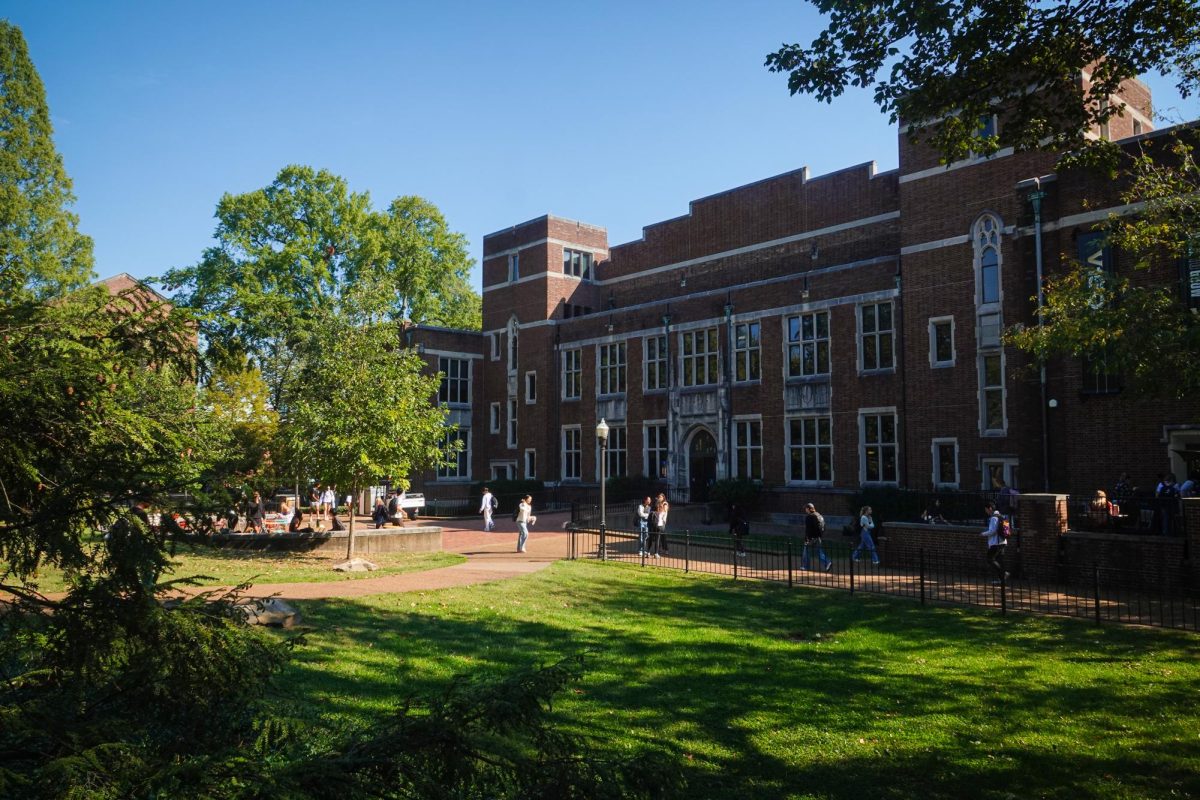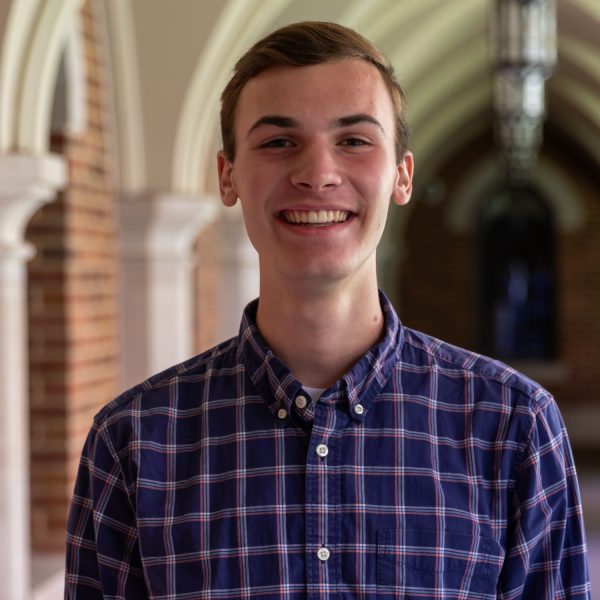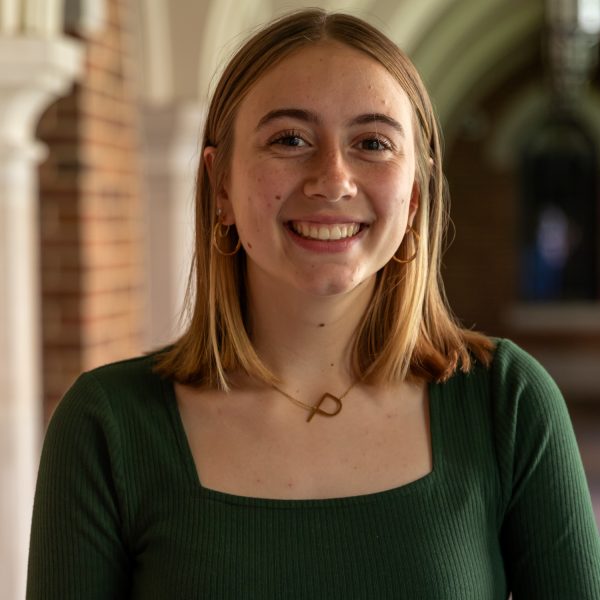Carl Wieman, winner of the 2001 Nobel Prize in Physics for his research in atomic physics, delivered the 33rd annual Guy and Rebecca Forman Lecture in Science Education on Nov. 14. In his lecture, he discussed the importance of incorporating research-backed learning techniques when teaching upper-level science courses. Wieman also spoke to various classes, research programs and Chancellor Daniel Diermeier.
Wieman is a physics and education professor at Stanford University and previously delivered this lecture in 2008. He also previously served as Associate Director for Science in the White House Office of Science and Technology Policy and founded the interactive science simulation program PhET.
He began the lecture by discussing his goal for all students in science courses at the university level.
“It’s not intended to turn all students into scientists. I don’t think we need that,” Wieman said. “But what we do need is scientific literacy for all students. In the modern world, that will allow them to make better decisions about their personal life, in their jobs and societal policy because science and technology are so omnipresent.”
Wieman said that he began researching science education after encountering many graduate students in his lab who performed well in physics classes, but did not understand how to apply that knowledge.
“I spent some years looking at the research on how people learn, particularly how they learn physics. It made me realize that there are much more effective ways to teach than what was happening in most of our classes,” Wieman said.
He elaborated upon the difference between traditional and newer models of learning based on recent research.
“The old and really pervasive model at current universities is that brains come into classrooms and vary in different ways, and we immerse them in knowledge. Knowledge sinks in different amounts, depending on what those brains were like,” Wieman said. “Research gives us quite a different view. That starts with how these brains aren’t all that different when they start out in their classrooms, but they are transformed through the educational process.”
According to Wieman, intensity and type of exercise are critical to training the brain, similarly to muscle development. He cited examples of research studies that show the benefits of active learning strategies — compared to typical lecture-style teaching — in large undergraduate classes.
“The two essential features of this form of teaching are that students are busy thinking and practicing the expert reasoning and application of knowledge, and the instructor is much more knowledgeable about students’ learning and thinking and can be much more effective in their teaching,” Wieman said.
Wieman said he believes that assignments given to students often eliminate the need to make important problem-solving decisions for the sake of simplicity.
“The process of experts solving authentic problems in their disciplines is defined by making a set of decisions that they have to make with very limited information,” Wieman said. “If they know everything about how to do it, then it’s just following a procedure. Learning to solve a problem like an expert in the discipline is really the goal you have for almost every course.”
Wieman also discussed student motivation, memory capacity and the impacts of distraction and digression on learning.
“Even things like having a nice illustration distract students’ attention,” Wieman said. “The thing that gets the most outrage from people when I tell them this is that those interesting little digressions or jokes actually hurt learning.”
Wieman concluded by encouraging a shift in teaching design and implementation to promote student learning and success before entering the Q&A portion of the event.
“The talk from Dr. Wieman mentioned many interesting stats on how emergent learning can allow for a deeper understanding on a topic and a higher retention rate for the information,” first-year Jack Schultz said. “From the perspective of a student, it was interesting to hear how this could be a better and more enjoyable learning environment. I do hope that more classes at Vanderbilt incorporate this form of learning in the future.”
Earlier in the day, Wieman spoke to Dr. John Wikswo’s College Honors Seminar – Max Delbruck, Bacteriophage, and Tbilisi class about active learning strategies. Wikswo is a professor of biomedical engineering and physics.
“There are a variety of active learning methods that have their particular advantages and difficulties. I advocate for the use of active learning methods, all of which involve having the students spend much of class time actively thinking and working to solve problems, with frequent targeted feedback from the instructor,” Wieman said.
Wieman said that incorporating active learning in larger STEM classes is challenging but possible.
“Students can be given questions they answer using clicker devices or cell phones, and they discuss with their neighbors. As they are doing these tasks, particularly the peer discussions, the instructor monitors what they are doing, provides feedback, answers questions and periodically gives brief lectures to the class,” Wieman said.
Vanderbilt currently has a learning assistant program, which encourages active learning among students. It relies on undergraduate students who have previously taken the class to support a learning model that includes group work. Professors at Vanderbilt use LAs in several ways, such as dispersed breakout time for practice problems with LA support or a block of time at the end of class.
Noah Stern, a sophomore in the class, said he believes Vanderbilt should work to include more active learning in classrooms.
“As Dr. Wieman said, motivation is key to success in an active learning style classroom. Unfortunately, here at Vanderbilt, students get caught up on memorizing notes to do well on tests and don’t actually learn the material,” Stern said. “The school needs to take steps to address this problem and start implementing aspects of active learning.”
Wieman’s conversation with Diermeier touched on how to best support students with poor high school preparation for STEM courses by using active learning strategies.
“We’ll discuss these ideas with the Deans and the Provost and then that’s how we would make changes on that. If this is something where we want to implement more, we will have conversations with our faculty in education who have thought about this long and hard so that we can get a variety of different perspectives,” Diermeier said when asked if Vanderbilt plans to implement active learning in classrooms.
Diermeier cited Immersion Vanderbilt as a “great” example of how active learning has already been implemented.
“Immersion is a great way to think about this, but there should be lots of other opportunities. This is something Provost [C. Cybele] Raver and Vice Provost [Tiffiny] Tung are really working diligently on,” Diermeier said. “While we already have lots of opportunities, we want to provide even more because when you are working on a research project or a community project, it’s complicated and challenging — which forces you to conceptualize it in a particular way.”






